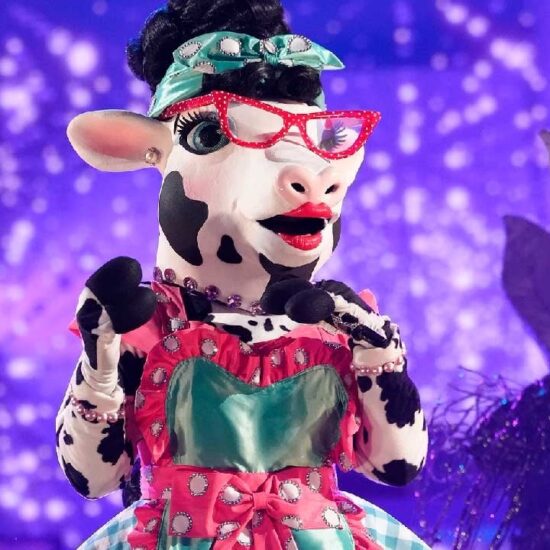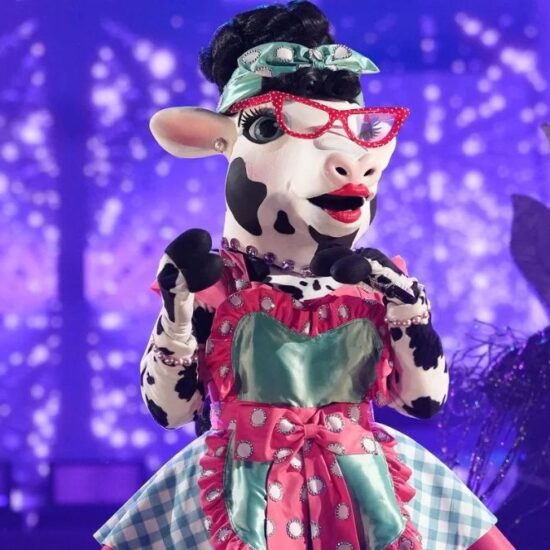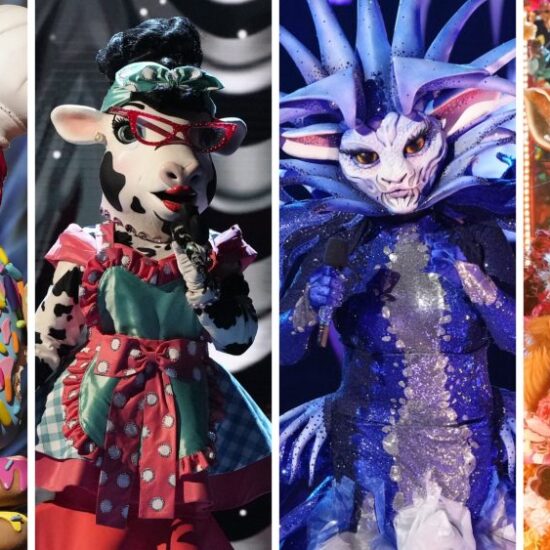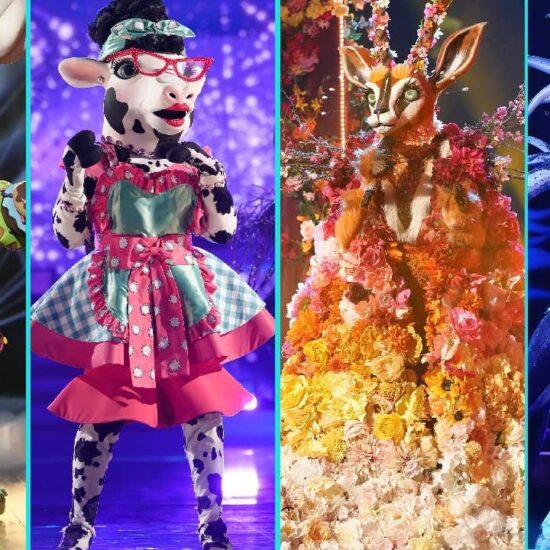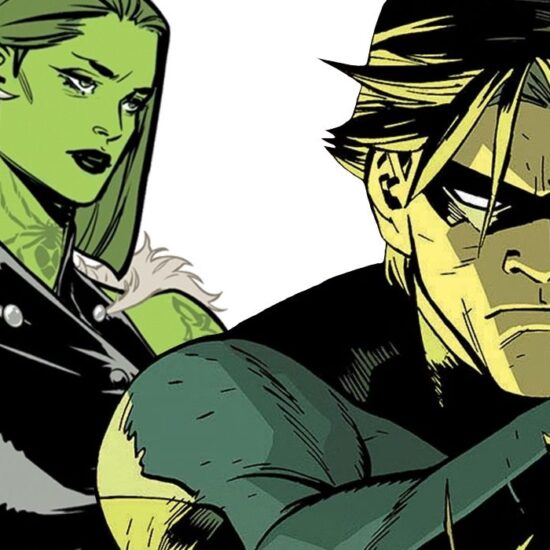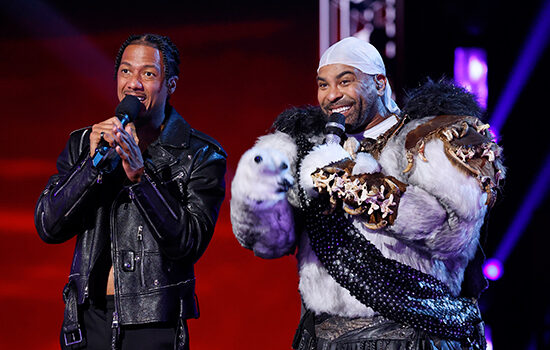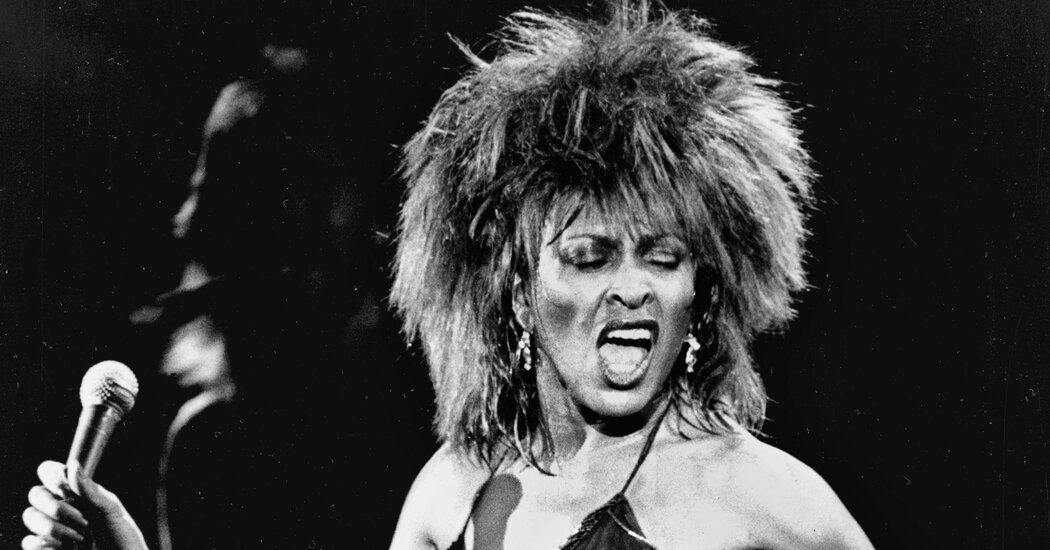
Hey, all you Still Processing listeners out there. Do you want to help me and Wesley settle a little summertime bet? Do you know the song “Before I Let Go” by Frankie Beverly and Maze?
OK, when is the first time you heard it? Do you just stop what you’re — do you drop your tray of food when it’s on in a restaurant, and you just got to go dance somewhere? What does the song mean to you?
And even if you’ve never heard of it, we want to know. Please record a short voice memo with your relationship to the song “Before I Let Go” and send it to us. Our email is stillprocessing@nytimes.com.
And stay tuned.
Yes, we’ll explain later. But now on to the show.
So Jenna, it’s 1988. We’re in Rio de Janeiro with the one and the only ever, Tina Turner.
Oh my god, I’m already so happy. [LAUGHS]
- archived recording (tina turner)
-
[SINGING “BETTER BE GOOD TO ME”]
She is rocking this crowd. This concert set a record, right? It’s 182,000 people, which is the most any 182,000 people have ever paid together to see one solo performance.
Wow.
This tour had 230 dates in 25 countries.
I cannot believe Ms. Tina was working that hard.
230 dates!
Unreal.
OK, the hair is enormous, right?
Yeah.
It is blowing.
Oh, yeah.
And she’s got this fringed —
Leather fringe, of course.
And it’s a mini dress, of course. I just got to say that she is already sweating. This concert is 11 minutes old.
Well, what we’re also seeing, though, is someone who is just in their element.
- archived recording (tina turner)
-
[SINGING “BETTER BE GOOD TO ME”]
And she looks as fit and as healthy and as vibrant as I’ve ever seen her. How old is she here?
48 years old.
Yes!
She just kicked the mic. This is the breakdown. This is Jenna’s favorite part of the song, even though —
Is it a bridge?
It’s a breakdown. It’s a breakdown.
Wait, is it a bridge, though? Honey —
No.
Oh, OK.
No, this is the breakdown.
OK, OK. Tina Turner is someone I regret never seeing live.
Yeah, I mean, just to be one of those people screaming Tina Turner’s name?
Ugh.
- archived recording
-
Tina! Tina! Tina! Tina!
Well, we do have an occasion to be screaming her name again, though. There is this HBO documentary about her life called “Tina.” It’s on HBO, HBO Max. It’s directed by Daniel Lindsay and T.J. Martin. And it’s basically the story of her life from childhood to her glorious 80, 81-year-old self. And today, you and I are going to use the occasion of this documentary to talk about Tina Turner, not just as a story, but as a musician, a performer, an experience.
I’m Jenna Wortham.
I’m Wesley Morris. We’re two culture writers at The New York Times, and we love Tina Turner.
[LAUGHS] And this is Still Processing.
I’m someone who, my biggest reference point for Tina Turner, for better or for worse, is the 1993 movie “What’s Love Got to Do With It,” starring Angela Bassett.
Sure, that’s lots of people’s.
And of course, “What’s Love Got to Do With It” is a biopic of the life of Tina Turner and her relationship with Ike, and then moving out into her own journey. And I mean, it’s great. I re-watched it after I watching the documentary. And it made me realize, though, how, as incredible as that movie is, it’s not sufficient for her life story. It is so painful to watch. It doesn’t lean enough into how much she shaped and changed music.
Right, and people who know Tina Turner through “What’s Love Got to Do With It,” the movie, they know this story of a woman who overcame an abusive marriage to an abusive spouse. But this was not a story that women were telling about their lives. It was a thing they kept hidden. It was a thing they were meant to feel ashamed for having survived. But in the culture, there were lots of stories about domestic abuse. Those narratives were in the culture. They were TV movies of the week. But so few of those stories involved a woman triumphing over that dynamic of abuse.
And this documentary is somewhat — it’s claiming, in some ways, to be liberating her from that narrative. But in order for the documentary to do that, it has to take you back through all of this pain and trauma. I mean, until this HBO Max movie, the major Tina Turner document is the book “I, Tina” from 1986. And I mean, I would describe that as basically an oral history of Tina Turner’s life as interpreted by Kurt Loder, who, Jenna, I know you remember from MTV News.
Yes.
This is the story of how she got rid of Ike. And what you learned from this documentary is that she thought that by writing this book, she could put it to rest. I do think that there is something about this particular relationship and its dynamic that is very hard to liberate Tina Turner from.
I also wonder, too, if the cultural narratives around domestic violence were salacious, right? Like a very reductive approach towards it. And I’m surmising that based on the way interviewers are approaching Tina. They keep asking her over and over again, like why didn’t you leave him?
Yeah, that’s a great point.
Ike was controlling the money. He was controlling her whereabouts. He had surveillance on her. The media is hounding Tina about her, quote, “complicity.” One of the weirdest things about the documentary is that it is almost entirely an indictment of the media and critical of the ways in which people won’t let Tina move past Ike.
Right.
And it’s also really incredible. I found that commentary to be incredible of how harmful it was for Tina to relive this relationship. But the documentary also is that it’s reliving the relationship. He keeps showing up.
And he was controlling the music, too. And to be fair to him, he is an architect of American rock and roll. He was heavily invested in the R&B and blues wing of things. But when it came to working with Tina, she had to work in that style, too. And what Tina could do as a singer was ultimately limited by what Ike as a musician could imagine her singing. That was the music he wanted to be making, not the music she wanted to be making necessarily.
- archived recording (tina turner)
-
(SINGING) The way you love me sometimes like I’m going to lose my mind. Although I —
But you watch these old Ike and Tina performances, and you don’t even notice him. She’s the person magnetizing you to the front of the stage.
I was thinking about that, the stage representing this bubble of liberation for her. The only time — Ike’s not going to hit her on stage. He’s not messing with the money like that. But you can see that once she gets on stage — and she’s written about this. I mean, she would sometimes go on stage sick, weak, ill, still bloodied, still black-eyed.
She had tuberculosis for eight years!
And talk about someone going from one field to another, right? Working in a cotton field to then working on this damn stage, you know.
Yeah, Tina’s from Nutbush, Tennessee. Her family was in the sharecropping business, more or less.
But she still had to pick cotton.
Yeah, she herself picked cotton many a time.
But my point really is that’s the one time she has freedom because he can’t say shit. There’s nothing he can do while she’s out there. And there’s a part in the documentary where she’s talking to the crowd. And she’s like —
- archived recording (tina turner)
-
Tonight, I want to speak to us women, you see, because —
— it’s time for the men to stop running things. Men are going to do what they want to do.
- archived recording (tina turner)
-
— always manage to get what they want. That’s right.
And you know what, ladies?
- archived recording (tina turner)
-
Whatever’s out there in the streets must be good ‘cause your man’s been out there a long time.
In the background, Ike is just playing, right? He now has to be submissive. He has to keep playing. She’s going to talk as long as she wants. And it’s a small thing, but it’s actually a major thing in some way. You know what I mean? That was where she just got to be free, as free as she could be during that time.
Right, well, you talking about her talking to the ladies in the audience like that reminds me of this moment from their 1971 live album. They do a cover of Otis Redding’s “I’ve Been Loving You.” And in the middle of the fog, she starts talking about some other things that ladies need to keep in mind.
Oh.
- archived recording (tina turner)
-
I want you to —
I want you to give it to me.
You know, things that he might not be able to do, or he needs to do better.
Wow. Ms. Turner, if you’re nasty.
- archived recording (tina turner)
-
[GUTTURAL GASPING]
[LAUGHS]
- archived recording (tina turner)
-
Sock it. Sock it.
Tina!
- archived recording (tina turner)
-
I want you to come on, sock it to me, babe! Oh!
I love this moment because it ultimately is about her giving herself the orgasm. He’s on some other part of the stage, just playing his guitar.
Right.
But he’s somewhere else. This is her moment. Every time she does it, she is giving herself this extreme pleasure.
- archived recording (tina turner)
-
Oh!
And it was a pleasure that was sort of alien to her in her house. And as long as she was with Ike, he was going to push her to sing his music even when she didn’t like it. And her voice, that voice could do so much more than Ike’s brand of R&B and blues.
That’s right.
But she did have these moments of revelation in terms of what else she could be doing with her singing. And the first one of those happens in 1966 when they make this deal to do a song with Phil Spector who had seen her and Ike perform. And he’s just like, I got to make a record with her. And he does. Ike permits her to make the record. But Phil Spector, mad man that he is and psychopath that he turns out to be, did not want Ike in the studio at all —
Oh, wow.
— to make this record. And it’s “River Deep, Mountain High,” one of Phil Spector’s masterpieces, one of Tina Turner’s great singing performances. And in the documentary, she talks about it just being this revelation for her.
- archived recording (tina turner)
-
It was so big, and my voice sounded so different, standing on top of all that music. (SINGING) I love you, baby, like a flower loves the spring.
Because she just didn’t know she could sing any other way, but to scream the way Ike wanted her to.
- archived recording (tina turner)
-
(SINGING) And I love you, baby, like a schoolboy loves his pad. And I love you, baby, river deep, mountain high.
And here she’s got a melody. She’s so good with it. There’s so much music in the song. I think there were three guitarists and three drummers and three bass players and all these strings and all these other singers. And she has got to climb all the way on top of those people —
Wow.
— in order to be heard. And she does it and she doesn’t have to scream the whole song to do it. And she can’t believe she climbed all the way up there.
- archived recording (tina turner)
-
(SINGING) — mountain high. If I lost you, would I cry? Oh, I love you, baby. Baby, baby, baby.
I love this song so much. I still think —
Perfect song!
— she sounds like she really believes what she’s singing in a different way. There’s something else she’s accessing in that song, and I don’t know what it is. I don’t know what she’s thinking about. I don’t know who she’s imagining that she loves like that rag doll.
Well, she found Phil Spector quite strange, but she also loved his belief in what else she could do as a singer. And you can hear it in the song.
The music itself is really reverential. It’s very holy. It’s like a different kind of choir. Do you know what I mean? It has this —
It’s celestial.
Yeah, it is celestial. That’s a really beautiful way to say it. It is celestial. And it’s lifting her up, and it does feel like this moment where she’s tethered to her true talent without him around. And maybe that’s the first time that’s happened in her career.
But in 1964, in that moment that the song doesn’t do well in the U.S., Ike basically wins. It hands Ike a victory. It was proof to him that the way his approach to R&B and the blues was the way that they should be going, instead of trying to keep working with that Phil Spector sound. And she just came to resent singing that that style of R&B, that style of blues. But it’s what she continued to do for another 10 years.
Mm, wow.
So he had control over the music, even when she was writing songs. She wrote “Nutbush City Limits,” which is one of my favorite Ike and Tina songs. But she still continued to do things his way.
I mean, talk about an extension of sharecropping. I mean, I think so much of Tina’s story is —
Oh, great point, yeah.
— she grew up in an abusive home, watching her father abuse her mother. And then her mother leaves. And she grows up with her grandmother. And she grows up feeling very unwanted, unloved. And that makes it really hard to ever believe or have confidence in yourself, until she does. But so much about that story is just about that — about these cycles that we inherit and what it takes to, I guess, get off the merry-go-round.
It’s interesting, though, that you put it that way, though, because she does not present any — everything that she’s feeling inside isn’t really obvious in the presentation. And I think the question was Ike’s style was getting old. They have a huge hit with their cover of “Proud Mary,” the Creedence Clearwater Revival song.
- archived recording (tina turner)
-
We’re going to take the beginning of this song and do it easy. But then we’re going to do the finish rough. That’s the way we do “Proud Mary.” (SINGING) Rolling —
With all due respect to John Fogerty, who wrote “Proud Mary,” their version of that song is basically the version. And what you hear is the power of her as a vocalist. And the way that she sang, the hugeness, the feeling, the strength, that was hugely important to creating this whole universe of how rock and roll is sung by white people.
- archived recording (tina turner)
-
(SINGING) Big wheel keep on turning, turning. Proud Mary keep on burning, burning. Rolling, rolling, yeah, rolling on the river. Say we’re rolling, rolling —
And it’s like we’re talking about Mick Jagger, Janis Joplin, Rod Stewart, all these people who wanted to emulate that force and that feeling. So, on the one hand, she’s incredibly influential to American music, but personally, she is in this little box that this man is keeping her in. I would say part of what this relationship with Ike was costing her artistically was the freedom to do what she wanted to do, and to miss out on all this cultural stuff that was happening, right?
Disco was happening at the later stages of their working together, right? Disco was beginning to happen. And I’m not saying she wanted to make disco. I can definitely tell you that she wanted to make rock and roll, which was, at that point, what American music basically was, more or less. And that was the music that was speaking to her. That’s the music she wanted to make. And she couldn’t really do it with Ike, who was still wedded to this 1950s way of thinking about rock and roll. And she leaves him. And part of leaving him, obviously, she’s leaving the marriage.
She’s leaving the domestic marriage, what was even left of it at that point. But she’s also leaving this creative marriage and going out to figure out who she wants to be as an artist, and not who this guy wants her to be.
I’ve been thinking a lot about why rock? And I mean, I’ve been thinking about it more from a philosophical perspective. Like, what does rock represent that what she was doing before didn’t represent? And I think there must have been some fatigue and just resistance to the performance of that intimacy, right? If you think about what R&B is all about, it’s about seduction. It’s these romantic ballads. It’s love songs. And rock songs are love songs, too, but they’re also about being independent or not being independent. And I think maybe that’s what she was drawn to. Maybe Tina was drawn to this idea of, both in a literal sense, her musical independence, but then also this thematic independence, too. And what would it feel like to be singing these types of songs now?
And she leaves the marriage. It’s a very dramatic thing in, I believe, 1976. She physically gets out. And then over the years, she manages to get a divorce. But during this period, she’s performing in Vegas. The arrangements aren’t great. But she is working her tail feather off, to quote her own song. And the shows are doing well. People are coming to see her. But eventually, this Australian manager named Roger Davies sees her. And he’s captivated, as one would be. And they start cooking stuff up. And she records “Private Dancer.” And that album “Private Dancer” comes out in ‘84, and it is an enormous hit.
- archived recording (tina turner)
-
(SINGING) What’s love got to do, got to do with it?
“What’s Love Got to Do With It” is the first official U.S. single and is huge. And the singing that she’s doing on this album is just different than the singing that she was doing with Ike, where when she was part of Ike and Tina, she was expected to do a lot of wailing and a lot of screaming. And “Private Dancer,” the genius of that album, in some ways, is that it’s softer, so that when she lets loose, it doesn’t hit you more than the ‘70s and ‘60s stuff, but it just hits you differently. That album sells 10 million copies around the world.
Wow.
And it’s the beginning of this incredible 1980s for Tina Turner. And this is the decade where she actually reclaims that voice and is figuring out what else it can do. So let’s just blow through the things that she accomplished in this three to four-year period. She wins four Grammys in ‘85.
- archived recording
-
And the record of the year is “What’s Love Got to Do With It,” Tina Turner.
Technically, one of them was for song of the year. She didn’t write that song, but it was about Tina Turner. It wasn’t about the guy that wrote the song. She plays Auntie Entity in “Mad Max, Beyond Thunderdome.”
- archived recording (tina turner)
-
And the law says, bust a deal, face the wheel.
It has two hits off that soundtrack, including “We Don’t Need Another Hero.”
Amazing.
She performs at Live Aid in my city, Philadelphia, the dearly departed J.F.K. stadium, with Mick Jagger.
- archived recording (tina turner)
-
(SINGING) I know you like to tease.
- archived recording (mick jagger)
-
(SINGING) Please, baby, please.
She turned down the role of Celie in “The Color Purple.”
[GASPS] What?
Yes, she did. I lived that story, she said.
Wow.
And she’s selling out every stadium she’s performing in.
Amazing.
And this is my favorite little tidbit from this little stretch of Tina Turner. She’s on “We Are the World.”
Oh my god.
- archived recording (tina turner)
-
(SINGING) We are the world. We are the children.
So I mean, just to harp on this a little bit more, this is all happening to this woman who was in her mid 40s.
I love it.
But you said something to me earlier that really struck me. And it was this idea that even when she is singing at the peak of her powers at the height of her voice, there’s something — she’s holding something back.
That was my intuitive feel watching her, and I’m still sitting with it, because there was something tactile in that “River Deep” record that I never sensed again. And in my mind’s eye, I feel like we’re watching a woman who has learned what it means to save parts of herself for herself. And I find so much pleasure in that because it’s not unconscious restraint, right? It’s earned. Tina is just done with her personal life being a headline. And there seems to be this knowledge of, I’m giving you everything I have. But I’m still keeping the most precious parts of Tina for Tina. And it’s just — it’s so admirable to watch.
Jenna.
Yes.
Do you remember “Divas Live“?
Kind of. It has this shadowy place in my memory, kind of like Oprah’s “Legends Ball.” I always know it’s happening, and I catch it kind of late, so, vaguely.
Well, VH1 used to gather America’s greatest living singers to come together for one night that they called “VH1 Divas Live.” And in the second installment, the first performer was none other than Tina Turner.
Ugh, so cool.
And the opening shot of the whole night is this limo pulling up. The first thing you see is Tina Turner’s legs. She’s just a pair of legs getting out of that limo, walking up the red carpet.
But walking in the way Tina walks with a little jauntiness.
Yes, this is 1999. Tina Turner is somewhere in her 60s, or almost 60. And the hair is shorter. It’s blonder.
More bangs, which is great. It’s really iconic Tina. This is one of my favorite of her hairstyles.
You can hear the revving engine of her song “The Best.” The room is going crazy because they know what’s about to happen.
- archived recording (tina turner)
-
(SINGING) I call you when I need you. My heart’s on fire.
Come to me, come to me —
(SINGING) Wild and wild.
Yeah. [LAUGHS]
Oh, I love this move! This move where she just starts marching across the stage, but then she’ll stop every time she puts her foot down and just, like —
It’s a little stretch.
- archived recording (tina turner)
-
(SINGING) Simply the best! Better than all the rest.
Yeah, there’s something about that kinetic energy that she’s always had in her dance movements that are so unique to her. There’s so much energy that just wants to come out of her.
So much energy always coming out of her! She’s a tornado! She is a gale force wind in body and voice.
She ends the song and she gets down on one knee.
Kneels.
And just soaks in the adulation.
Because she’s just so grateful. She’s just soaking it in. It’s not that she’s full of ego. It’s more like self-respect and respect of the space. And it’s just not — she’s so honored to be there. And the gratitude that her life is as rich as it is, it’s a lesson of — I mean, again, it’s just a lesson in self-preservation and a lesson in what it means when you know your worth.
She’s so happy to be wherever she is when she’s performing. That is the thing that I love most about watching Tina Turner. And at this point, you and I have talked about her as a musician, as a singer with a voice, and how she took the voice back, right? She reclaimed it when she got out of that marriage. But she also had to take back her image — the hair and the clothes. And the number one thing that she took back in order to get to a moment like 1999, “VH1 Divas Live,” is her name. Ike Turner made Anna Mae Bullock, Tina Turner. He didn’t ask her. He just did it. And he modeled her on — was it Sheena, Queen of the Jungle? And he trademarked her name, which I didn’t even know that she knew.
Wow.
The greatest scene — I mean, I don’t know. I think most people will say that the big limo fight is the greatest scene in “What’s Love Got to Do With It,” the movie. But I would say the big scene for me is the courtroom scene.
- archived recording
-
It means you’re going to walk out of here with absolutely nothing.
- archived recording (tina turner)
-
Except my name. I’ll give up all that other stuff, but only if I get to keep my name. I worked too hard for it, Your Honor.
Just give me my name. I mean, but it’s more than taking her name if you think about the fact that it wasn’t even her name. Do you know what I mean?
I know.
It’s like —
But she understands the sweat equity and the worldwide recognition of that name. She wants it.
What is she going to do, go to Vegas and be Anna Mae Bullock? No, M.F. Because whatever this —
The artist formerly known as —
Right. I mean, whatever value this name has is because I gave it value. You don’t deserve this name. And so it’s not just her name that she takes back. It’s her look.
Yes.
I think that the hair and the clothes are a huge part of her reimagining herself. And so by 1984, if for the first time you’re seeing Tina Turner in that “What’s Love Got to Do With It” video and she’s got that new hair —
Ugh.
— that fireworks explosion geyser of hair?
Yes, yes!
That simultaneously, to me, is both a lion’s mane and a headdress.
Ooh.
Right? It feels very much like a chief’s headdress. But she also mentions in “I, Tina” that that long, dark hair is connecting her to her Cherokee and Navajo roots. Her mother’s side of the family, they’re Native American. And that connection, she really feels it. She says she’s always felt it. That hair is just so important, you know? And it just doesn’t look ridiculous on her because think about all the Tina Turner Halloween costumes you’ve seen.
I was thinking about that, too, about how her look became a little bit of a caricature. But it was still never making fun of her.
Yes, you can’t fill these shoes. People look ridiculous —
That’s right.
— playing Tina Turner. But you can’t fill that out.
Right, right, right.
The barrier is not just that you can’t fill the wig and you can’t fill the denim jacket, you can’t fill the leather mini skirt. It’s that there is an energy that she is giving off in these clothes, in this hair, that is so much about self-confidence and belief in herself as a sexual being.
It also seems, too, that part of that embracing her sexuality is embracing her sensuality, you know? There is something about the way, as the love inside of her grows for herself, you can feel it more. And I think she, in the excerpts — because you’ve been texting me excerpts of the book “I, Tina” all week, which has been a highlight of my week, just a pure delight — she talks a bit about that. And then she also talks about how she used to hate what she saw in the mirror. And she kind of assumed that the lack of love in her relationship with Ike was due to some defect in her, rather than being a function, right, of their own illnesses. And it’s really incredible to see her when she’s undergoing this transformation you’re talking about — seeing her embrace the parts of herself that she loves the most, seeing her love her legs, love her heritage, love her hair and love her face. And she didn’t have the same kind of Madonna or Cher-esque approaches to adornment that obscured her face. A lot of musicians and celebrities at that level play with their image so much. And they love to play with different looks and different personas. And Tina’s not — that’s not what Tina’s about. Tina’s all about enhancing what’s there, which I really see is an act of self-love.
Yeah, also self-belief, right?
And self-belief, yes.
I don’t need to be 20 different people. I just need to be this.
It took me this long to be me, and I am going to be me as much as I can. It also seems, too, that for Tina, the big transformations that we see in her music — her looks, her hair, her persona, her life — they actually all start inside of her in this moment in the late ‘70s, when she encounters Buddhism. And then, of course, in the research for the show I’ve been reading parts of her book “Happiness Becomes You,” where she talks about how she’s applied the principles of Buddhism to her life, which essentially makes her a dharma teacher, to someone who relays the principles to modern life to help make it accessible to other people. So I mean, to me, that’s pretty amazing. But one thing she writes about in the book is that a sound engineer actually mentioned it to her. You know, Tina, have you ever thought about chanting? This is the height of the abuse, the height of her, just the — I guess, the peak of her depression, where she’s really feeling trapped and unsure about how to move forward in her life. And she’s able to regain possession of her mind. Because when you’re in an abusive dynamic, you can’t trust yourself.
Yeah, I think I was really struck in “What’s Love Got to Do With It” when she finds the Buddhism. And I remember seeing that at the Cheltenham Mall in Philadelphia with a bunch of presumably non-Buddhist Christians.
- archived recording 1
-
What? I don’t know what — I don’t know what I’m saying sounds.
- archived recording 2
-
I know, I know, I know it. It feels strange, but it’s chanting. I’m a Buddhist now. And when you chant, Anna, you can see things clearly. It’s like life’s mirror.
And there was something about her repetition of that mantra over and over again. And it takes on a kind of speaking in tongues quality for anybody familiar with Pentecostalism.
- archived recording
-
[CHANTING]
There is a way in which her chanting is — it is empowering her, and it is making her stronger. And it felt in the audience at the time foreign to a lot of people watching that. But I also think once it became clear what it was bringing up in her, and what it was allowing her to do, it was pretty clear that we’re just talking about God. And that was powerful, watching her embrace spirituality to get her out of this marriage.
I think people don’t know what to do with spirituality that they don’t understand. And I really love how Tina is, across all medias and mediums, is talking about how she was transformed from the inside and how that allowed her to start making these bigger changes in her life. The first tier of emancipation for her is leaving Ike. And then the second tier of this emancipation is learning that she’s enough. I mean, it’s a really deep moment, actually, where she’s like, I’m looking in the mirror. How come no one loves the woman that I am? And it’s really emotional.
And I think a lot of women, and especially Black women, relate to that feeling of growing up in a culture that tells you, you’re not pretty enough and that your natural hair texture is not enough and that your skin color is not enough. And it’s like when Beyonce says, I can never be too perfect to feel this worthless. You understand that women struggle with these demons, despite the outward trappings of success. They still struggle with feeling valued and loved. And it makes me feel more sane, knowing I’m not the only one that has those thoughts — that these incredibly famous, gorgeous, brilliant women also have these thoughts, you know? But one of the things for Tina is the chanting helps her achieve this calm inside that allows her to be open, to love.
Well, it’s interesting that you’re looking at it as this Black woman sort of trying to love herself, too. Because part of the disconnect, I think, in 1993 in the movie theater, was that you were watching this Black woman who grew up in the church suddenly discover her true power through some non-Christian religion. And I think that, to me, is also indicative of somehow Tina Turner’s relationship with Black culture. And how when I was a kid, when the Tina explosion happened, when “Private Dancer” came out, it was really interesting that in Philadelphia, the big Black pop music station where all the jams were, they didn’t play “What’s Love Got to Do With It.”
That’s interesting.
You did not hear “Better Be Good to Me” on Power 99, WUSO. There’s always been this tension about who we embrace in the moment. And I feel like Black America’s embrace of Tina feels, to me, retroactive in some way. But I think there’s something about Buddhism that just — it made her seem even more foreign, in some ways, than relatable.
Yeah, there is this undercurrent of tension about Tina Turner’s relationship to her Blackness and whether or not she’s accepted by Black people, whether or not she’s rejected Black culture. And I think the judgment and criticism about how Black women, especially when they’re famous, live their lives and whether or not they’re Black enough. You saw it with — we talk about it with Whitney Houston. There is this inherent cruelty when you don’t conform, right? Or when you do things, you march to the beat of your own drummer, it’s like there is this really interesting fear-based reaction to criticize and shame as not enough.
I mean, you get put through this ringer of authenticity. I also think this is somebody who has always understood who she was. There’s this passage in “I, Tina,” where she talks about going to Europe when “River Deep, Mountain High” is a hit over there — a bigger hit over there than it was over here. And she is talking about how comfortable she is in France. And she’s like, don’t get me wrong, I’m Black. Nobody’s hair is nappier than mine is. But I also feel like I have been here and that I am somehow — maybe it’s my mixed blood. Maybe it’s working for all those white people in Tennessee all those years. Maybe it’s going to the Black church all that time. But I’m a person who, in some ways, exists beyond Black and white. I’m somebody who exists as myself. And it’s beyond culture. She literally says, I believe that I was universal. And I got to say, I think so, too. You watch her in those stadiums, Jenna?
No, she is absolutely at home. And I think we forget, too, that what we all imagine are the most transformative, exhilarating, formative years of your life — your teens, your 20s, and your 30s — being bound up in this abusive workhorse relationship. And so to hear about the freedom and the liberation she experiences in her 40s and her 50s is just so incredible.
But there are still mountain peaks. There are still achievements left for this woman. And one of them is being re-inducted into the Rock and Roll Hall of Fame.
Brm, brm, brm! Yes, this has to happen!
Yes, indeed.
This has to happen. This has to happen this year.
She is in with Ike Turner. They’re in there as Ike and Tina. Now she’s on the ballot for induction as a solo artist. And I’m going to tell you, the competition is fierce. It’s like Tina Turner, Jay-Z, Mary J. Blige, Todd Rundgren — hello, Philadelphia — Kate Bush —
Wow.
— one of my heroes. I mean, L.L. Cool J, Chaka Khan, Dionne Warwick.
Oh my god.
And Jenna, even if she doesn’t get it, I was just on the induction fan vote Rock and Roll Hall of Fame page. And I’m looking at this leaderboard. And in fifth place of the five slots that the fans most want, fifth place, Foo Fighters. Fourth place, Iron Maiden. Third place, The Go-Go’s. Number two, Fela F-ing Kuti. Fela Kuti!
Wow.
But number one, by a not insignificant margin over Fela Kuti —
Oh my god!
— the one and only Tina Turner.
Ugh!
So even if the people who vote for the Rock and Roll Hall of Fame don’t want Tina Turner in it this year —
The people do!
— the people do. The people do. So Rock Hall voters —
Do the right thing.
— y’all know what to do. You better be good to her. Be good to her.
And that’s our show! Still Processing is produced at The New York Times by Elyssa Dudley and Mahima Chablani.
This week, we have an extra special gluten-free vegan nut-free treat. We made you a playlist of Wesley’s favorite Tina Turner songs. It lives at nytimes.com/stillprocessing. Our editors are Sara Sarasohn and Sasha Weiss.
Marion Lozano mixes the show.
Digital production by Mahima Chablani, Des Ibekwe and Julia Simon.
Special thanks to Lisa Tobin and Wendy Dorr.
Our theme music is by Kindness. It is called “World Restart” from the album “Otherness.”
Just keep your fingers crossed for dame Tina to get Rock and Roll Hall of Fame certified again.
See you next week.








